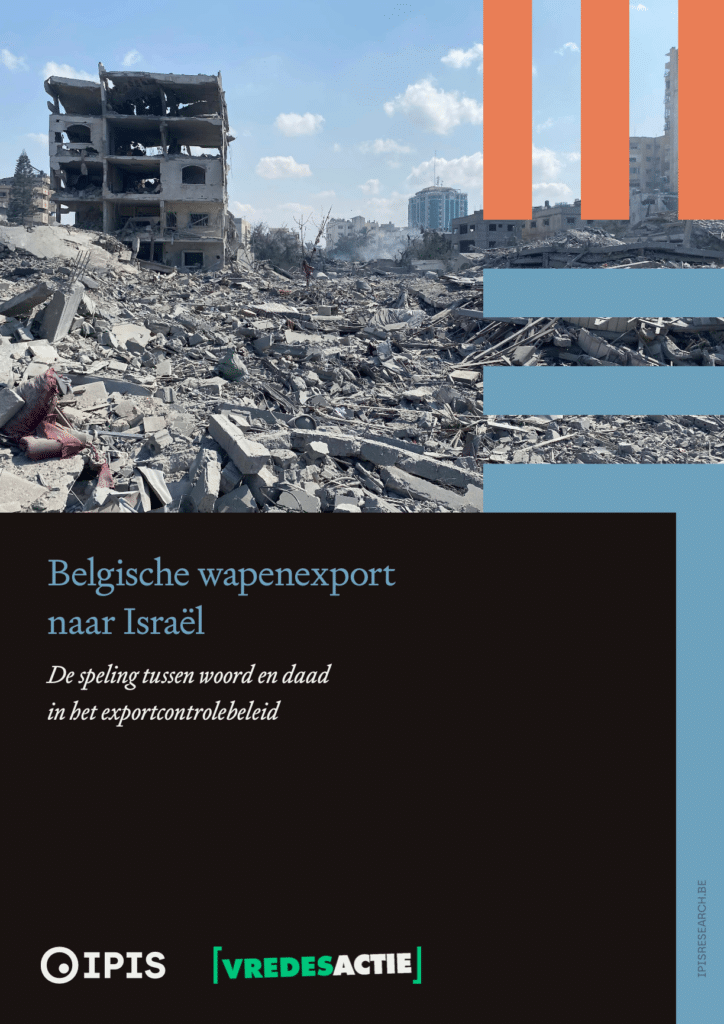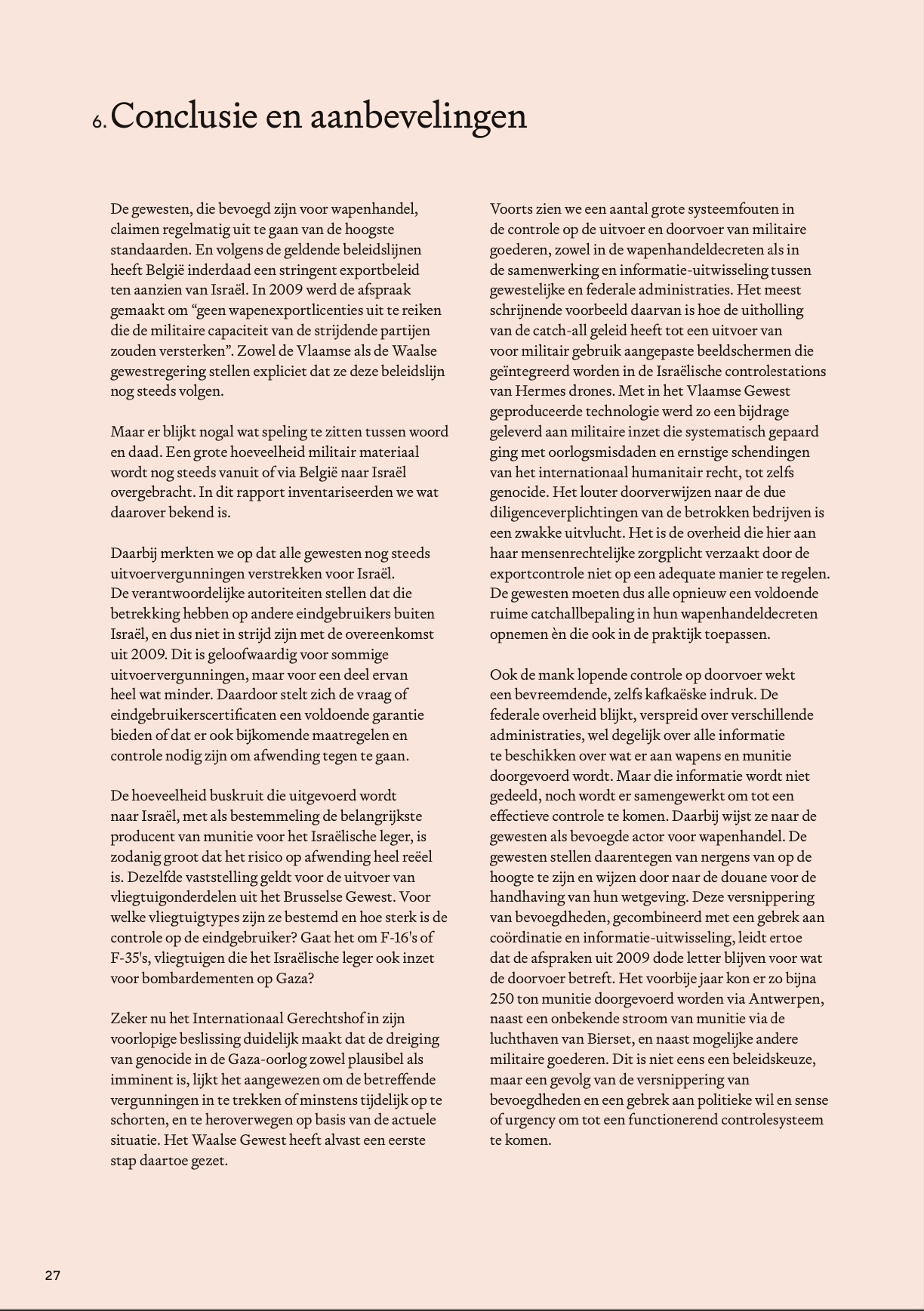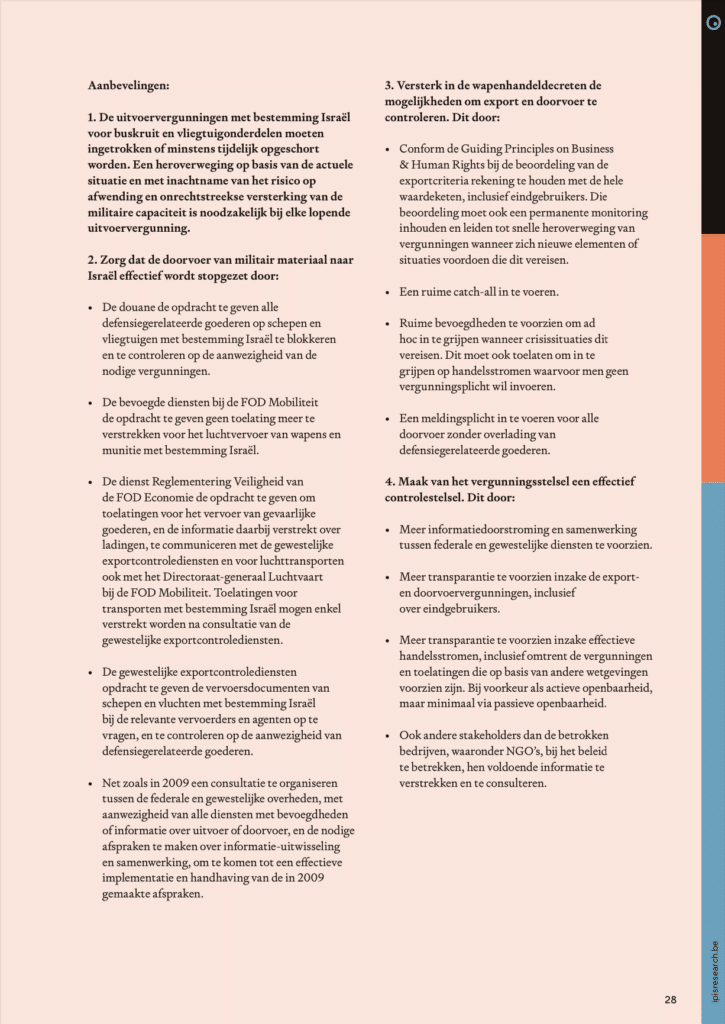In this report, Vredesactie and IPIS take a critical look at Belgium’s policy on the export and transit of defense-related goods and dual-use goods to Israel.
The new Gaza war puts this arms trade policy back in the spotlight. The regional governments, responsible for arms trade, regularly claim to assume the highest standards. And according to current policies, Belgium does indeed have a stringent export policy toward Israel. In 2009, the federal and regional governments agreed “not to issue arms export licenses that would strengthen the military capabilities of the warring parties.” Both the Flemish and Walloon regional governments explicitly state that they still follow this policy line. But in practice, there appears to be a serious discrepancy between words and deeds. Indeed, quite a bit of military equipment is still being transferred to Israel from or via Belgium. This discrepancy raises questions about the effectiveness of the legal framework and its application or enforcement. The acute war situation is already putting these contradictions and shortcomings in policy under strain.
After a brief overview of the international legal framework and the restrictions it imposes on exports and transit from the standpoint of human rights and international humanitarian law, we examine the situation in Gaza and the occupied Palestinian territories, and what implications arise from this legal framework. We then zoom in on Belgium’s arms trade policy toward Israel and identify the pain points and weaknesses in the policy and legal framework.
This publication has been produced with the financial assistance of the Belgian Directorate-General for Development Cooperation and Humanitarian Aid (DGD). The contents of this document are the sole responsibility of Vredesactie and IPIS and can under no circumstances be regarded as reflecting the position of the Belgian Development Cooperation.





